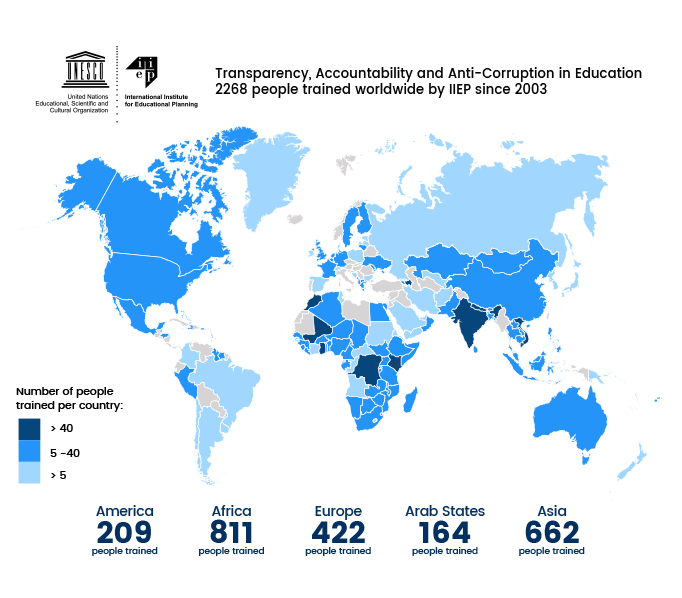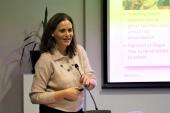Anti-corruption day: developing country capacity to fight corruption in education

UNESCO’s International Institute for Educational Planning (IIEP-UNESCO) and the Network of Education Policy Centers (NEPC) joined forces to offer a new regional course on ‘‘Transparency, Accountability, and Anti-corruption Measures in Education’ from 4 to 6 October 2018 in Tbilisi, Georgia. The overall objective was to strengthen the participants’ skills in assessing corruption risks, selecting adequate tools, and formulating strategies to address a lack of transparency and accountability in the education sector. The course was hosted by the National Centre for Teacher Professional Development (TPDC).
Working with country teams
The course was designed for country teams from Azerbaijan, Croatia, Estonia, Georgia, Moldova and Mongolia. Each country's team included three to four professionals from Ministries of Education, public regulatory or control bodies (e.g. anti-corruption commissions, inspection agencies, offices of general auditors, quality assurance bodies), higher education institutions, and non-governmental organizations concerned with improving transparency and accountability and reducing opportunities for corruption in the management of the public education sector.
Addressing the challenge of corruption to achieve SDG4
Embezzlement, ghost teachers, rigged calls for tender, illegal registration fees, academic fraud – there is ample evidence of the prevalence of corruption in education. Surveys suggest that leakage of resources from education ministries to schools contributes to the reduction of educational opportunities and widens social inequalities. Bribes and payoffs in teacher recruitment and promotion tend to lower the quality of teaching. Illegal payments for school entrance and other hidden costs contribute to low enrolment and high dropout rates. In other words, "ensuring inclusive and equitable quality education and promoting lifelong learning opportunities for all" as called for by the fourth Sustainable Development Goal (SDG 4) will only be achieved with due attention to transparency and accountability issues.
In this context, the course aimed to enable participants to better assess the nature and extent of such problems, and to identify good practices and solutions to address them. It built on IIEP’s long experience in the field of ethics and corruption in education, which includes the organization of a large number of policy seminars, workshops, study tours, and courses, conducted in all regions of the world, and technical assistance activities, in several countries. Altogether, IIEP has trained more than 2,200 people in the area of transparency, accountability, and anti-corruption measures in education (see map below). The first of its kind, the Tbilisi course responded to the needs and evolving education landscape of participating countries – gathered through the strong network of NEPC.

Country projects and co-working approach
Upon completion, each country team produced a project proposal. Project topics designed per participant country are listed below.
- Developing a transparent, comprehensive, fair and effective financial model in schools (Azerbaijan);
- Development of a comprehensive system for fair assessment practices in the education system (Croatia);
- Improving transparency in teacher management in government schools (Estonia);
- Clearer procedures for hiring invited teachers in schools (Georgia);
- Qualitative application of the ethic code for teachers (Moldova);
- Contributing to the reduction of corruption in basic education through regulating parental informal payments in Ulaanbaatar (Mongolia).
Each country team had the opportunity to present the main outcomes of its work during co-working sessions involving other country teams and in an interactive and collaborative spirit.
Future perspectives
It is now up to country representatives to pursue implementation and garner the necessary financial support for the issues they raised during the Tbilisi workshop, upon their return home. The organizers wish everybody a successful journey in tackling these issues further on!
IIEP will continue to offer similar courses in the future in its continued effort to develop capacities to overcome corruption in education worldwide.
For more details, please contact Muriel Poisson


